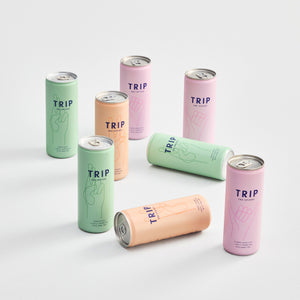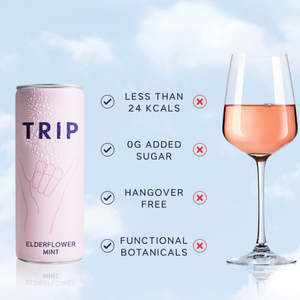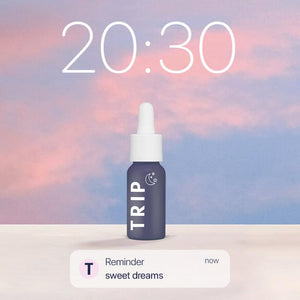DOES CBD MAKE YOU HIGH?
A common misconception about CBD is that it makes the user feel high. While some parts of the cannabis plant do lead to a feeling of euphoria, CBD does not. THC is a psychoactive component of cannabis and is the reason why this feeling is so closely linked to cannabis plant species derived products.
The science behind CBD is that, unlike THC and other cannabinoids — the naturally occurring compounds in the cannabis plant — it does not bind to the receptors that cause high feelings. Consequently, it can diminish the intoxicating feelings of THC, because it has altered the way that these receptors bind to these chemical compounds.
IS CBD ADDICTIVE?
If you’ve not tried a CBD product before, you might be wondering if it is addictive. Despite its growing popularity, more research is needed before certain guarantees are confirmed, however, an early report from the World Health Organisation (WHO) claimed that CBD showed no signs of leaving users feeling dependent on it. The report also stated that it could actually possess benefits which offer the opposite effect.
HOW LONG DOES IT TAKE FOR CBD TO TAKE EFFECT?
How long it takes for CBD to take effect likely differs from person to person, with an individual’s metabolism, diet, weight and genetics all potentially playing a role in this. What distinguishes CBD from other natural treatments is its distinctive effects, and it generally gets to work quite quickly — typically around 15-45 minutes after ingestion.
You can take CBD in many forms, ranging from oils and drinks to capsules and gummies. Different types can be faster acting than others. For example, by taking CBD oil and using a dropper to place it directly under the tongue, it will be absorbed quickly into the bloodstream. This method is often noted as the most effective. It also takes longer when you eat CBD, i.e. in gummy form.
HOW LONG DOES CBD STAY IN YOUR SYSTEM?
Once again, like the effects and dosage of CBD, this depends on the individual. The dosage, product, method of application and your body's makeup are all factors that will determine the length of CBD’s stay in your system. It might range between a number of days to several weeks.
A 2018 review found that, for those who do not regularly consume CBD, the elimination half life was around two to five days. Thankfully, the persistence of CBD in your system for a prolonged period of time doesn’t have any proven side effects.
DOES CBD HAVE SIDE EFFECTS?
CBD is a safe substance when ingested orally or applied topically. However, it might interact with existing medication, so consulting with your GP before taking CBD is advised.
CBD vs THC
While both CBD and THC are cannabinoids, they have different effects, something that’s determined by their respective chemical structures. While they may both have therapeutic benefits, they are somewhat like chalk and cheese on the whole.
CBD and THC are both found in the cannabis plant, and have the same formula, but their atoms are arranged differently, giving them unique properties and varying impacts on the body.
THC works by binding to the receptors in the brain that control pain and regulate our mood, resulting in a euphoric high, but also motor impairment, dizziness, pangs of hunger and anxiety. Taking CBD does not result in these negative feelings and instead, it simply influences well-being and relaxation.
In short, THC is a compound that provides a psychoactive response, and CBD is non-psychoactive, potentially helping with common pain symptoms related to inflammation, migraines and tension, as well as evidence to suggest it may also help with long-term conditions like ‘diabetes, arthritis and Crohn’s disease’.
CAN CBD HELP WITH PAIN RELIEF?
Research conducted by the University of Michigan found that “ongoing preclinical studies in animals have demonstrated that CBD reduces pain and inflammation, and studies show that it is well-tolerated and has few negative side effects”.
CBD can increase levels of anandamide in the body, a compound that is linked to regulating pain. A report published in 2018 also concluded that for chronic neuropathic pain, CBD may serve as a helpful treatment which reduces the intensity of symptoms, psychological stress and sleep difficulties.
The reason CBD is thought to provide effective relief from these problems is because of the way it potentially modulates pain by stimulating the reuptake of neurotransmitters that inhibit its sensations. It may also work by blocking the signals that reach parts of the brain responsible for inflammation.
CAN I TAKE CBD WITH MEDICATION?
Since it is a biologically-active compound, the effects of CBD on other medications are often hard to predict, and can cause unintended interactions with other medicines, including over the counter medications and prescriptions.
Your body breaks down medications, but CBD may compete for or interfere with these processes, resulting in a change of concentration of the particular drug in the body. This can inhibit the effectiveness or amplify the side effects of the medicine.
Harvard Health states that some of the medications that have significant interactions with CBD include warfarin (a blood thinner), amiodarone (for heart rhythm) and several seizure medications like clobazam, valproate and lamotrigine. If you have a pre-existing condition, speak with your doctor before consuming CBD.
CONCLUSION
CBD affects people differently. Since it has adaptogenic-like properties, its reaction with an individual's brain and body may vary resulting in various effects.
While we still have a lot to learn about CBD, it can potentially have a great positive impact on the body and mind, radically changing people’s lives for the better. If you want to experience its wonderful potential, have a look around our shop to see which product is best for you and your needs.


















